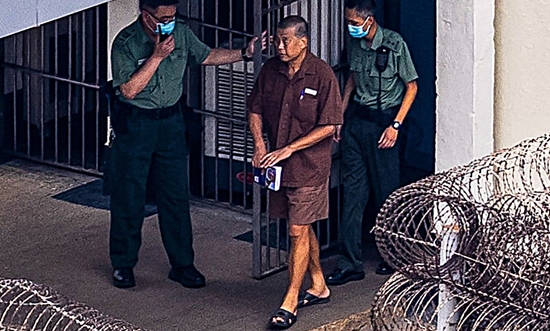
In late October, Donald Trump told commentator Hugh Hewitt that if he should win the presidency he would negotiate for the release Jimmy Lai, the former publisher of the Hong Kong pro-democracy newspaper Apple Daily.
“I’ll get him out. He’ll be easy to get out. But we don’t have people that even talk about it.”
If Trump could succeed at this, a big if, could he also perform the same service for a second person unjustly incarcerated by the Chinese Communist Party? For a third person?
The individuals unjustly incarcerated by the CCP number in the hundreds of thousands or millions. The Chinese government could not plausibly liberate all wrongly imprisoned Uyghurs, Tibetans, Buddhists, Christians, members of Falun Gong, and many others without also outlawing arbitrary governmental assaults against innocent persons. (Outlawing the assaults in fact, not only on paper.)
Anything approaching such drastic reform would mean giving up CCP rule and accepting the end of China’s current system of government, something that Chinese dictator Xi Jinping and his cohorts and subordinates would never do voluntarily.
Jimmy Lai
But maybe convincing the Chinese government to release at least one elderly prisoner, a British citizen, Jimmy Lai, is possible. If President-elect Trump makes the attempt, he would have do so without offering anything in exchange that compromises U.S. interests.
Don’t try, says Hong Kong’s so-called justice minister, Paul Lam, in the wake of Trump’s victory in the presidential election (“Don’t threaten Hong Kong’s rule of law if you want close ties, Paul Lam says after Trump win,” South China Morning Post, November 10, 2024).
Secretary for Justice Paul Lam Ting-kwok also said on Sunday that Hong Kong’s judicial independence remained unaffected by attempts to alter legal practices through comments or actions from abroad….
Asked how to address Trump’s often unpredictable moves, which could include sanctioning all the city’s judges, Lam said any interference targeting the judiciary would run counter to the rule of law.
“Anyone attempting to use statements or actions to demand changes to our judicial procedures or try to influence the [judicial] outcomes is, of course, violating the principles of the rule of law, and such behaviour is inappropriate,” he said on a television show.
CCP underlings like Lam often characterize any objections and opposition to their despotism as “inappropriate” and as “violating the principles of the rule of law” and similar such silliness. The words are supposed to mean whatever Lam et al. pretend they mean. Of course, the rest of us need not defer to the real or affected sensibilities of these despots or play along with their pretenses. And we can do without “close ties.”
Also see:
Acton Institute: “The Hong Konger: Jimmy Lai’s Extraordinary Struggle for Freedom”





